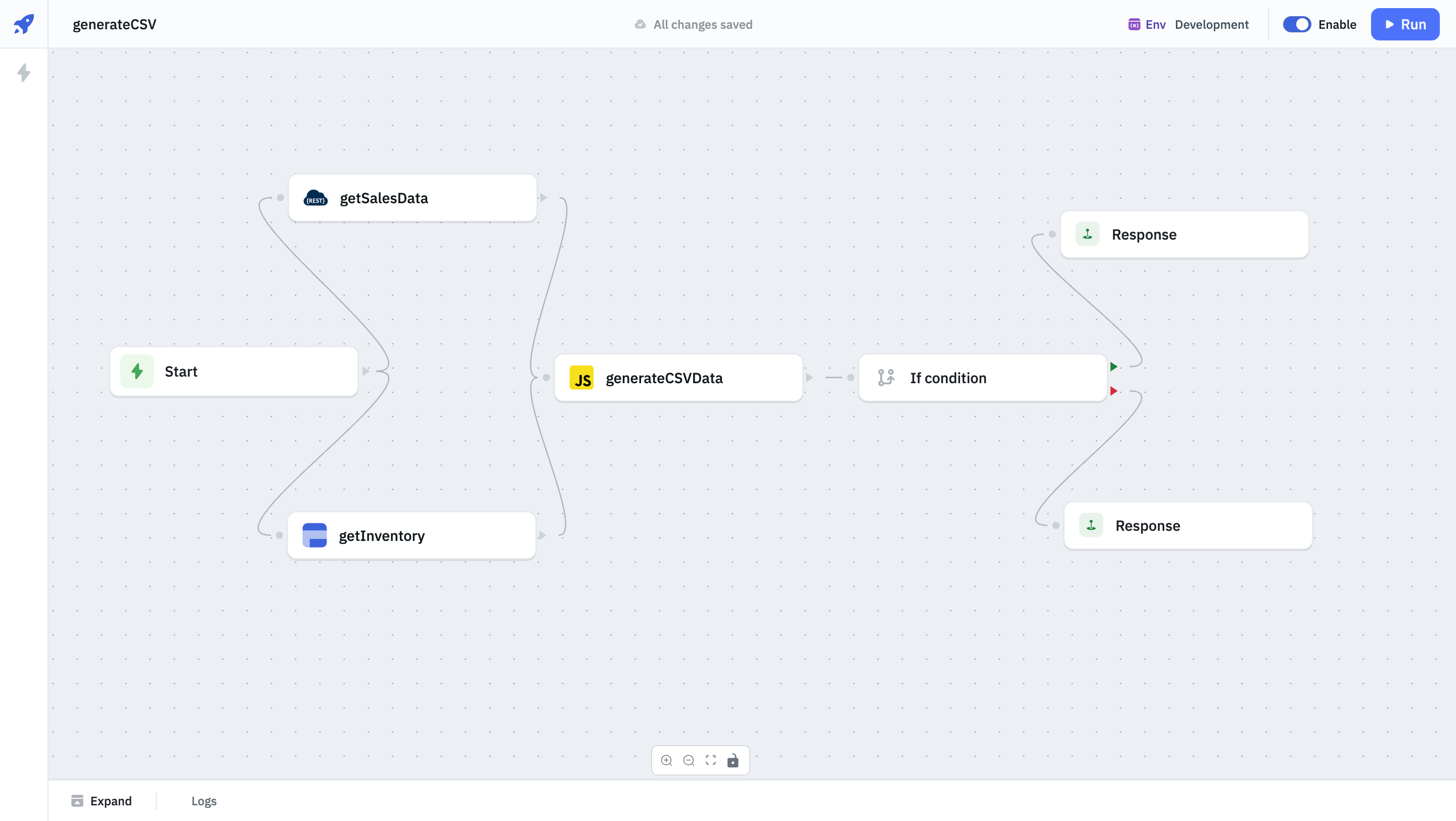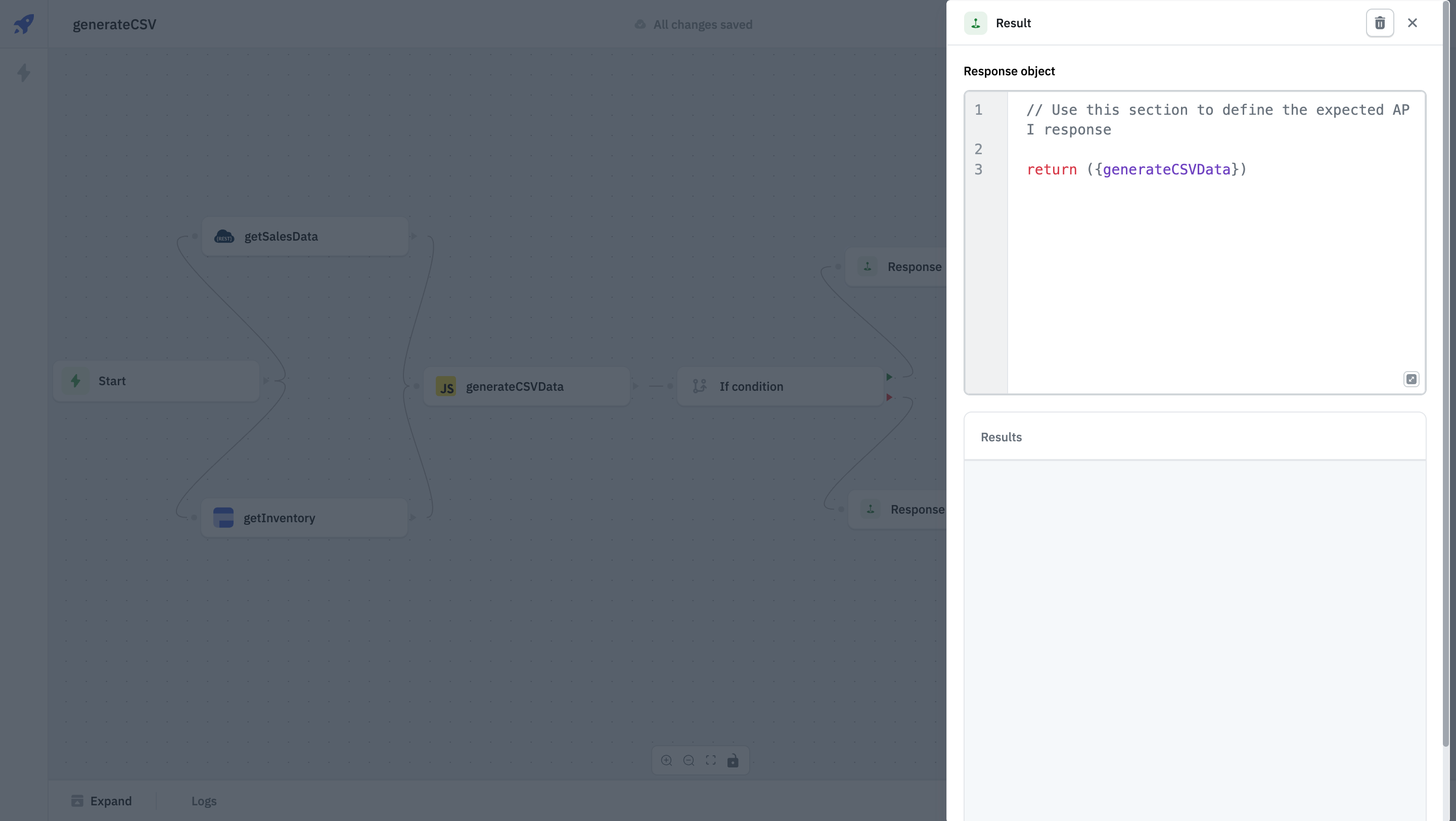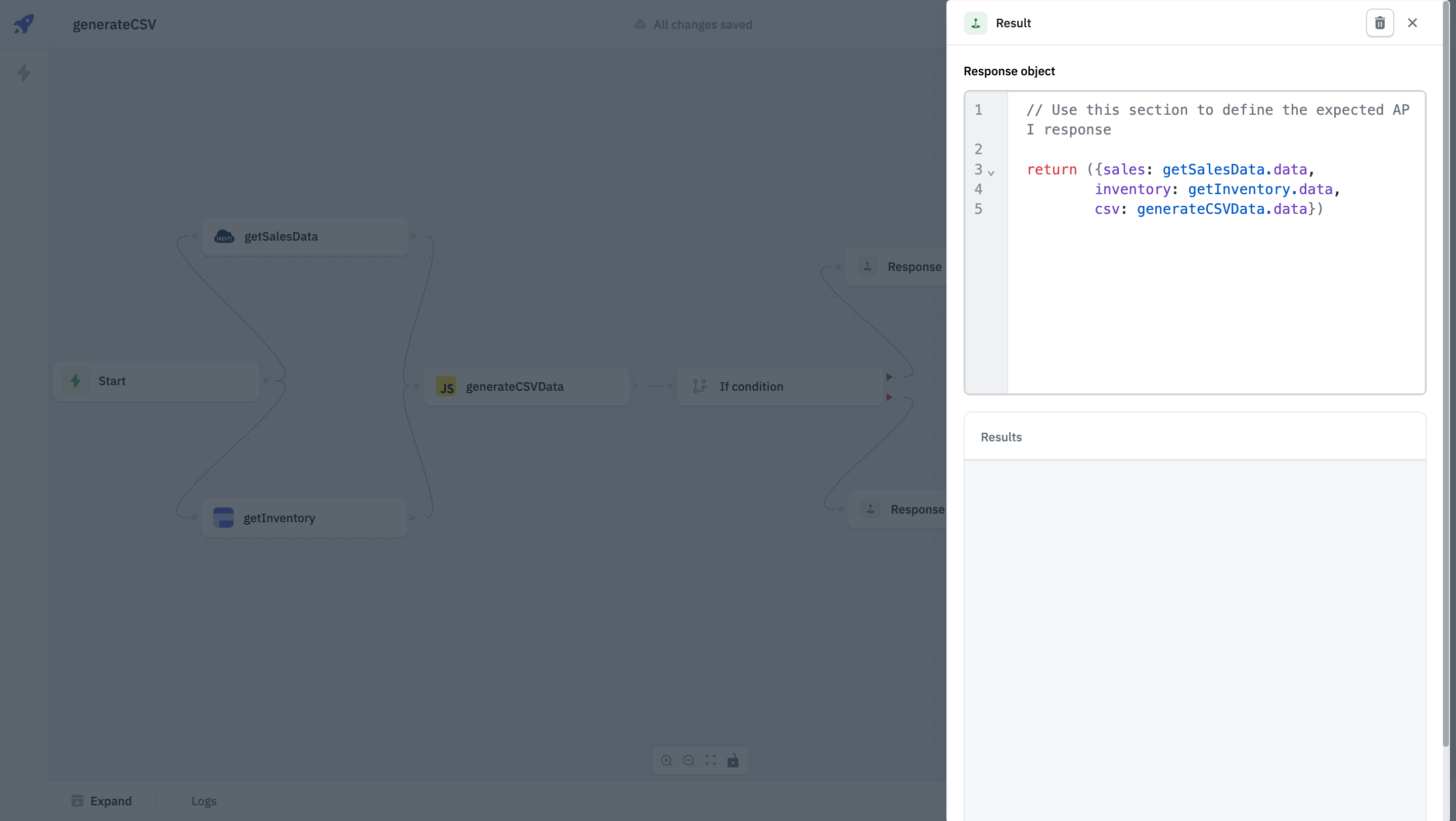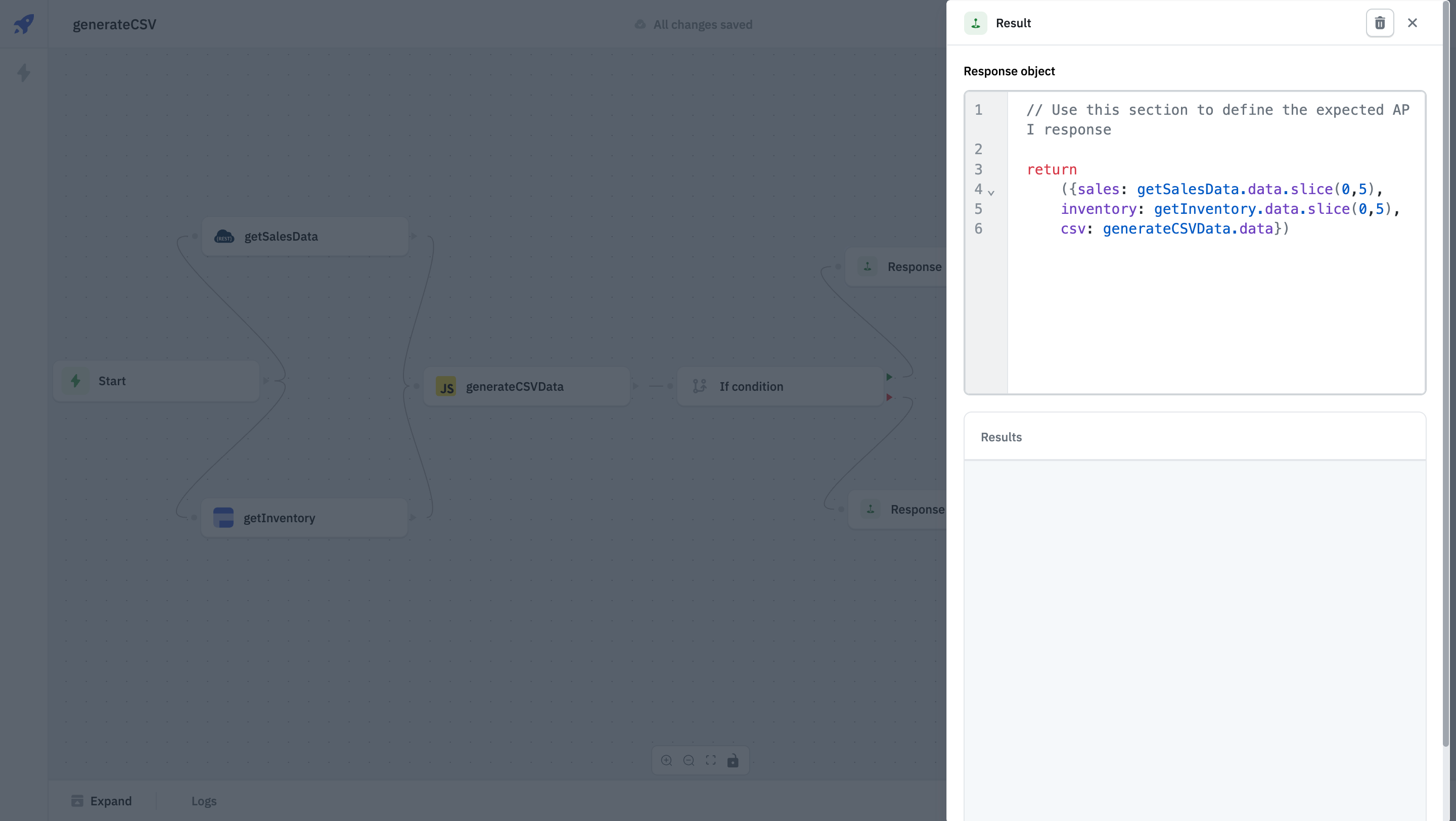Configuring Response
Users have the flexibility to customize the response returned by workflows. The Response node enables configuration of your output through JavaScript code. Each workflow can have multiple response nodes.
Return Data from a Single Node
Consider a workflow that combines sales data (from the getSalesData node) with inventory data (from the getInventory node) via a JavaScript operation (in the generateCSVData node).

Within the Response node, specify the output by using a return statement that encapsulates an object within parentheses:
return ({generateCSVData})

Returning Data From Multiple Nodes
You can also return data from other nodes. Either return the complete data set or specify only the required portions, as demonstrated below:
return
({sales: getSalesData.data,
inventory: getInventory.data,
csv: generateCSVData.data})

Fine Tuning Your Response Using JavaScript
Refine your response by manipulating the data using JavaScript functions. For example, the slice function can be used to select a subset of data:
return
({sales: getSalesData.data.slice(0,5),
inventory: getInventory.data.slice(0,5),
csv: generateCSVData.data})

Workflow Execution
When executing workflows with triggers, the configured data in the Response node will be included in the API response. When triggered inside a ToolJet app, the data will be returned in the same format as a regular query.